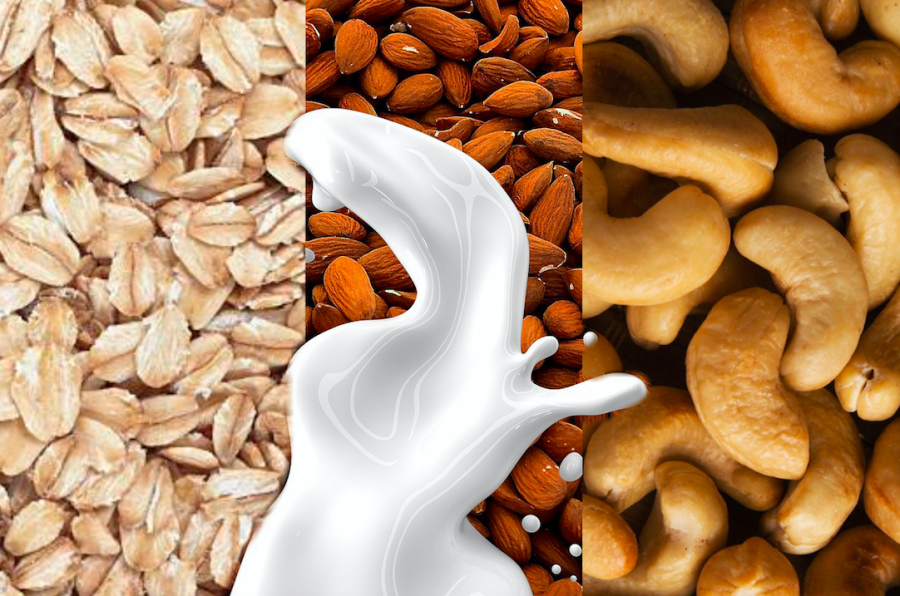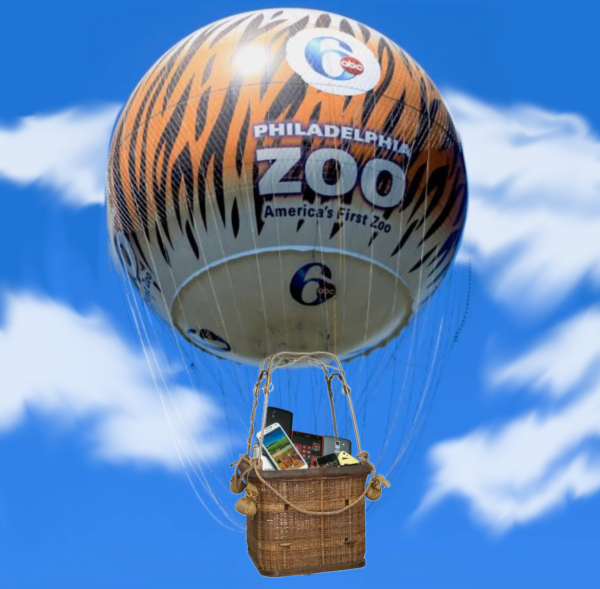Got Plant-Based Milk? Difficult Decisions in Our New Sustainable World
February 6, 2020
In 2019, Greta Thunberg became TIME Magazine’s Person of Year, becoming the leading voice of thousands like her participating in school strikes against climate change. With the help of voices like Greta’s, climate awareness spread further this year than it ever has before.
In the summer, aversion to plastic was one of the core personality traits of the internet’s latest characters: “VSCO girls”. It is safe to say that sustainability became a trend in 2019 and is making its way into this new decade with trends like “Vegan-uary” already beginning.
Veganism, or even just plant-based eating, is a very common approach that people use to calm their own conscience when it comes to sustainability. Its original, grounding morals are to do no harm to animals, but many have started participating because of the amount of carbon emissions animal products produce. In a study published in the Washington Post, it was found that if a person consumes a 5-ounce steak weekly, it will produce 334 kg of carbon emissions for the year. To put that in perspective, 334 kg is about .4 tons. The EPA found that on average a person’s yearly vehicle emissions are 4.6 tons. Weekly steak consumption is a tenth of that emission and many people eat steak more than that. After learning that information, plant-based eating can be appealing to a lot of people.
While changing your diet to be more plant-based can seem easy at first, as the popularity of sustainability grows, so do the options, which makes decision-making complicated. Whole Foods and many other stores like it have entire sections dedicated to non-dairy milks. Choosing the right one is difficult.
Drinking a cup of basic, run-of-the-mill dairy milk adds 229 kg of carbon emissions to your yearly total. Non-dairy alternatives are probably one of the easiest ways to cut down on carbon. When making a coffee run, the two most popular options are almond and oat, but which one should you choose? On paper, almond milk is 14kg more efficient than oat, coming in at 51kg of carbon emissions, while oat has 65 kg. So it’s an easy decision, right? Wrong.
While sustainability is commonly associated with carbon emissions, it also involves many more concepts. There are other factors to consider, like water usage. One glass of traditional dairy milk requires 120 liters of water, almond milk requires 74 liters, and oat milk requires around 10 liters. Oat milk is by far the most efficient in this aspect. Is the extra 14 kilograms of carbon worth the 64 liters of water? Again, sustainability is complicated.
Making plant-based decisions sometimes leaves the realm of sustainability and enters that of ethics. As we head into 2020, a climber in the world of dairy alternatives is cashew milk. Cashews are tasty, have a butter-like quality, and use far less water to grow than almonds. They seem like a decent option, but if more research is done, you may find some calling them blood nuts. It’s a scary nickname.
In between the layers of the cashew, there is a chemical that leaves burns on hands if it touches them. The nuts are mainly produced in Vietnam and India, sorted and shelled by workers in factories, who are not paid by the hour, but instead by the amount of cashews they process. They are given gloves to shield from the chemicals, but often forgo them to make the most they can, which is still much less than minimum wage. Even though cashews have a low carbon footprint and low water usage, drinking cashew milk can be troublesome ethically.
It is important to be conscious of your impact on the world, and acting sustainably is a great way to do that. However, as the popularity of sustainability rises, so do the options out there, and everyday the consumer is faced with tough decisions. Eating well for the planet is not as easy as it looks, and everyone has their own way of approaching it. The most powerful thing is getting educated, and when someone may not be as well-informed as you, teaching them instead of judging. Just remember that everyone is trying their best.







